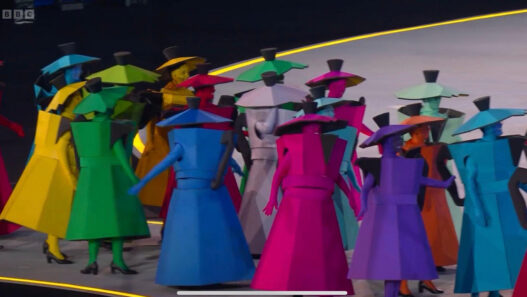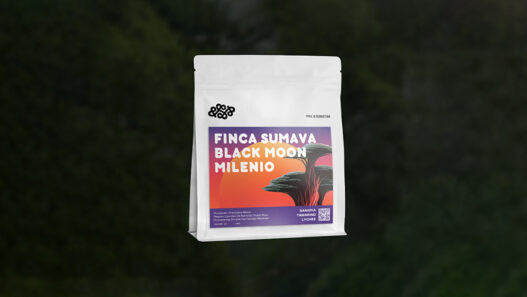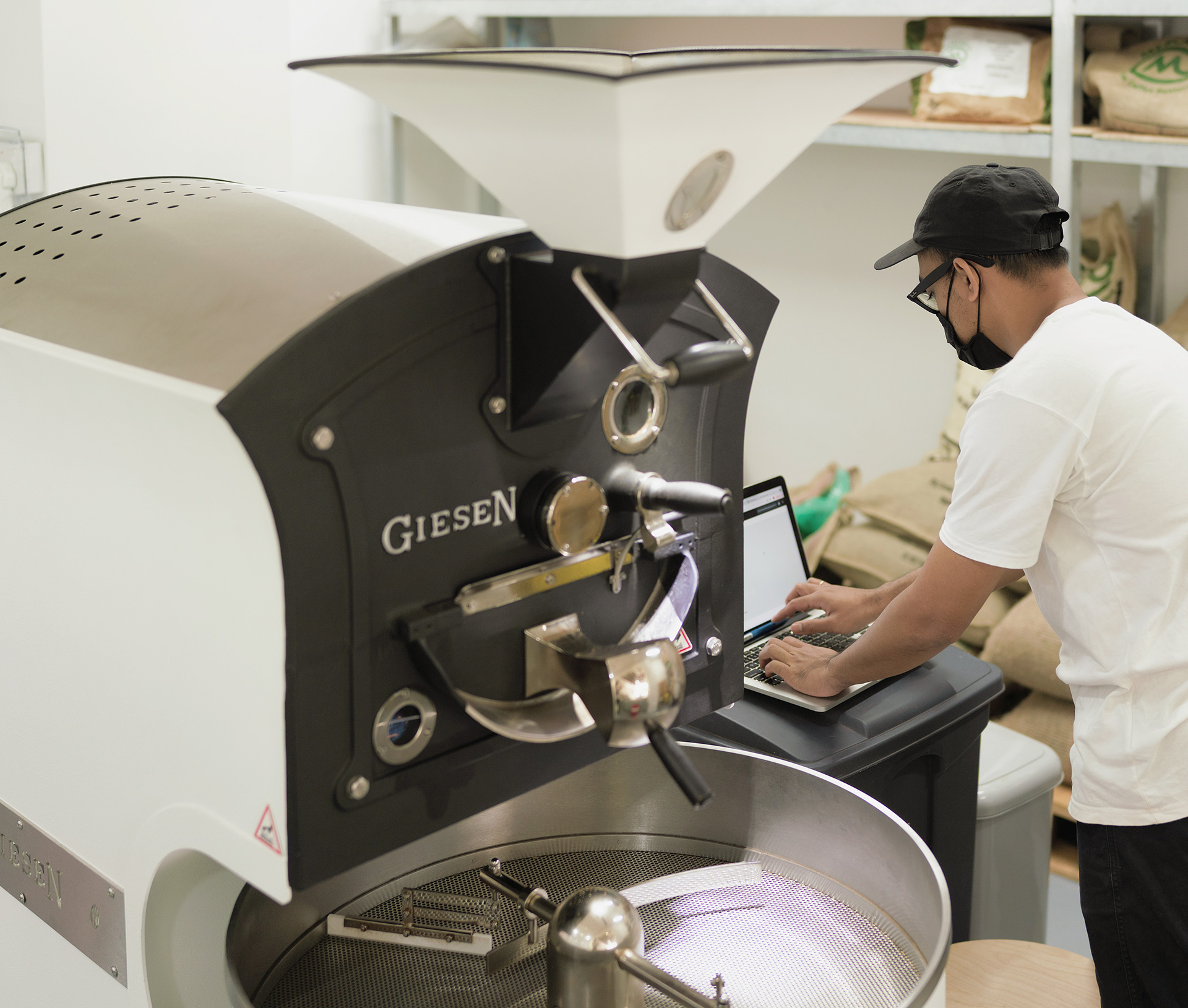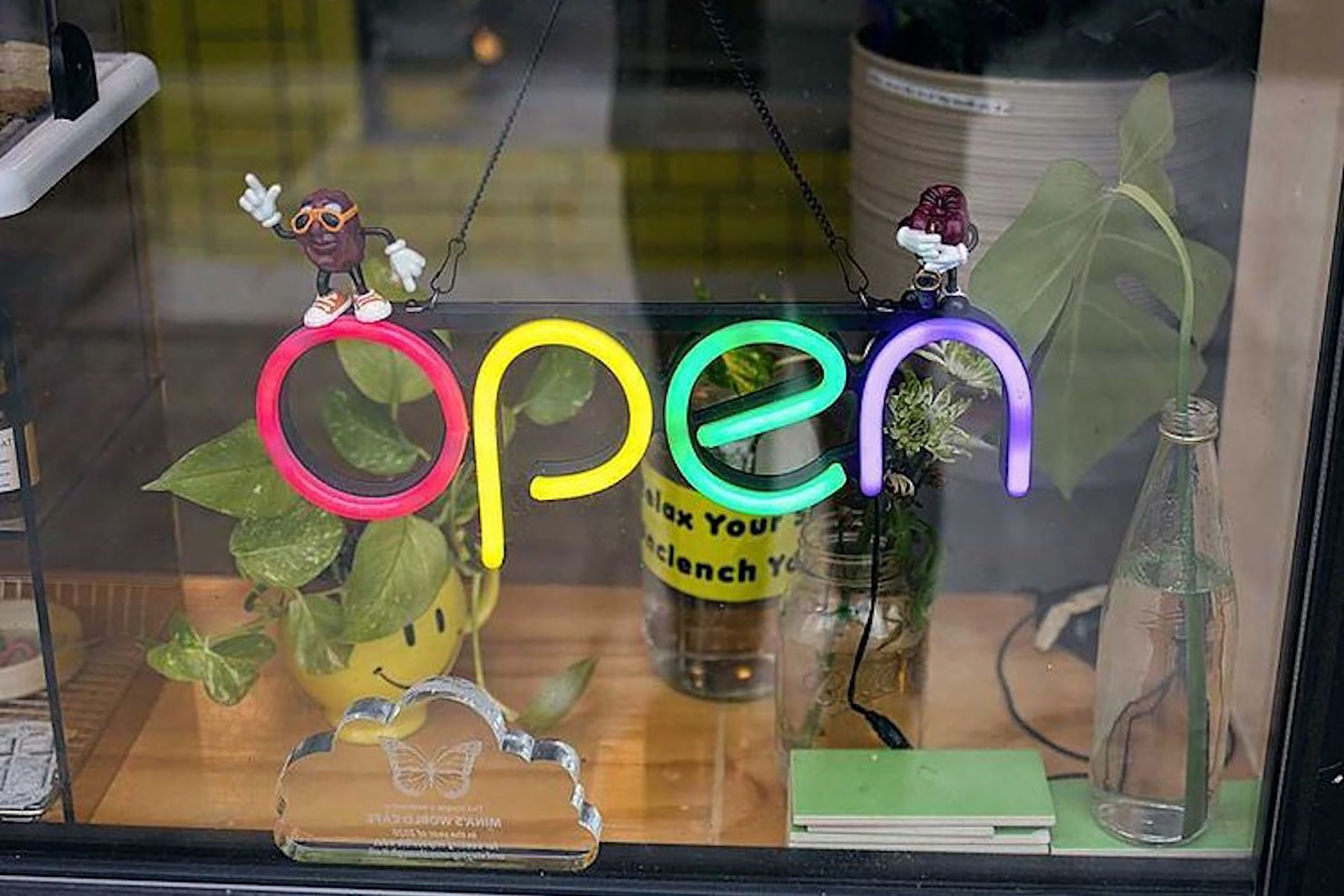On Tuesday, the Wall Street Journal posted a story titled “Ritzier Coffee Brews Contract Conflicts“– this feature is well worth a read. Going beyond traditional narratives in coffee market stories, Leslie Josephs looks not just at supply-side issues contributing to rising coffee prices, but also at the effects that evolving consumer demands are having on the coffee trade, both in terms of price, and in terms of the problems that come from applying decades old bulk-focused contract models to the emerging micro-lot quality coffee supply chain.

The meat of the story is about how the “Green Coffee Association, a trade group whose members include food companies such as J.M. Smucker Co. and Nestlé USA” is working alongside other industry bodies to revamp the approach used to negotiating coffee contracts. The move towards more direct-trade flavored coffee sourcing approaches, combined with increased attention to quality, means that the current situation, where responsibility and remedies for quality issues that can arise between when a lot of coffee is bought based on evaluation of a tiny sample and when the hundreds or thousands of pounds of the lot actually arrive at a roastery.
In providing context to these changes, the WSJ does a great job of highlighting larger trends in the market, especially “shortages of some of the world’s most coveted beans” and “more consumers quaffing premium-price specialty brews.” It is particularly interesting to see them raise this point, and back it up with a recent study by the National Coffee Association, since most financial press coverage of coffee is focused on supply issues from things like Coffee Rust (roya), or the recent drought in Brazil.
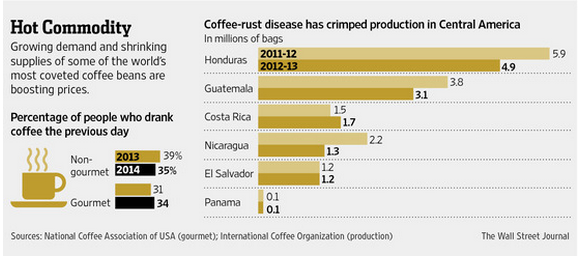
This story also does a service in its attempt to demystify what is meant by “direct trade”–in this companion blog post posted yesterday, they point out that “direct trade, which has become a buzzword in the coffee market, is a bit of a misnomer.” To help explain they turn to Thompson Owen, one of the green coffee buyers at industry stalwart Sweet Maria’s, who, among other quotes, contributes this often misunderstood gem: “I never go there and put coffee in my backpack and take it home.”
It’s interesting to see news of the direct trade movement’s effects on commerce reaching the pages of the WSJ, and a good reminder that as more and more money flows into the high end of the specialty market, questions around things like relationship trade practices, previously considered in both philosophical and economic terms, are becoming increasingly high-stakes and big-business. Look no further than the WSJ’s expanding coffee coverage to see how serious people are taking these concerns.
Check out the whole article here for yourself.
Alex Bernson (@AlexBernson) is the Assistant Editor at Sprudge.com. Read more Bernson here.




